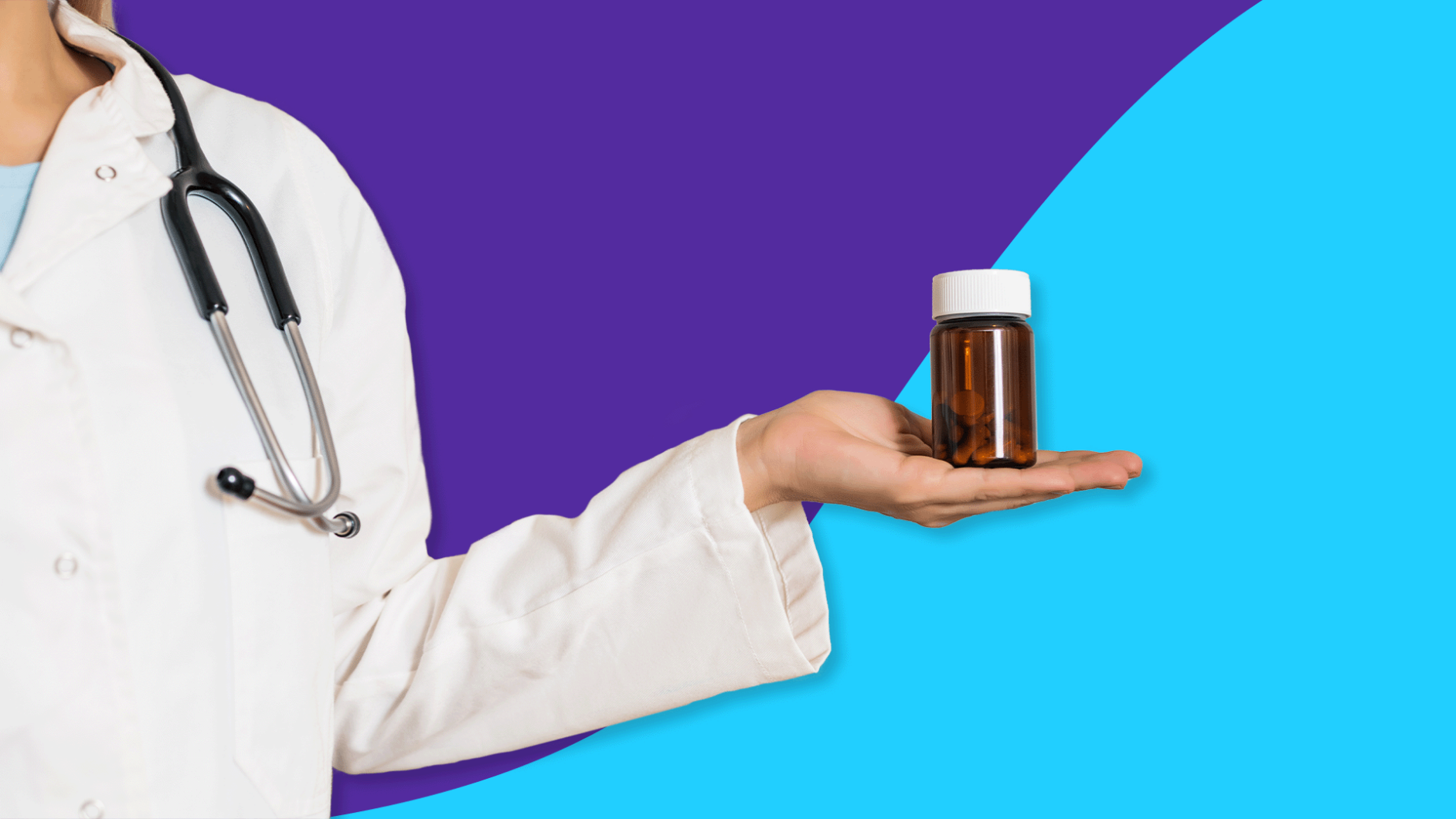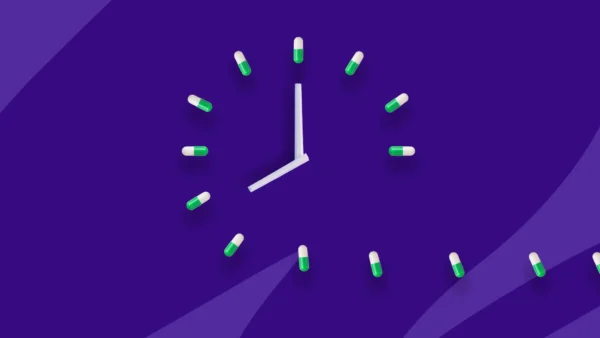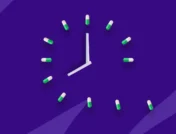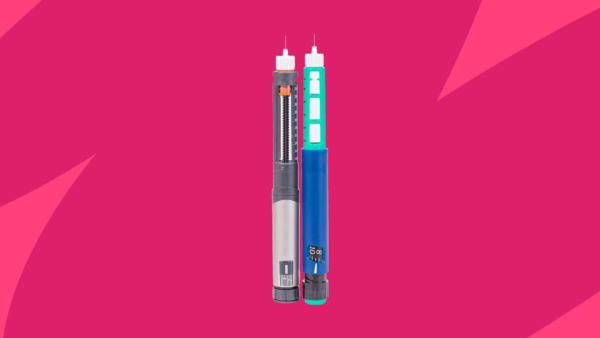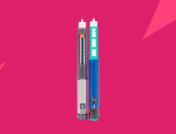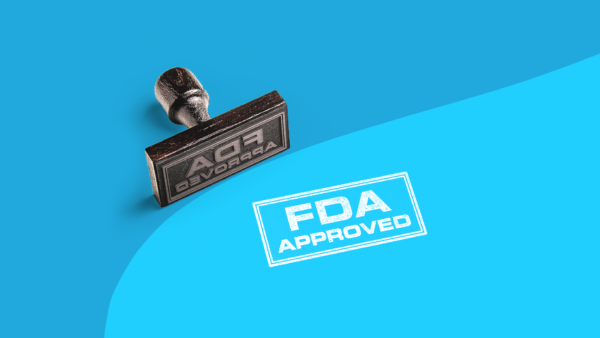Key takeaways
Jardiance is a medication mainly used for Type 2 diabetes that’s now also recognized for its potential to slow down the progression of chronic kidney disease (CKD).
Research, including the EMPA-KIDNEY trial, has highlighted its benefits in preventing the progression of kidney disease and reducing heart-related issues.
Jardiance is effective for CKD but should be used with caution, especially for those with advanced kidney disease due to possible side effects.
Guidelines for Jardiance include starting with an appropriate dosage and closely monitoring for any kidney problems like dehydration.
Jardiance is a medication mainly used to manage blood sugar levels in adults with Type 2 diabetes, but it may also help reduce the risk of complications in people with chronic kidney disease (CKD). Its active ingredient, empagliflozin, works by blocking a process that reabsorbs blood sugar from the kidneys back into the body. As a result, Jardiance helps the body clear sugar through the urine. Because of its effects on the kidneys, Jardiance may be a particularly helpful medication for managing CKD alongside its original use for diabetes control.
Still, Jardiance is known to cause adverse effects in people with certain kidney issues. Therefore, there may be a narrow line between using Jardiance for CKD and potentially increasing the risk of problems in people who have severe kidney disease.
Read on to learn more about the link between Jardiance and kidney disease.
Overview of Jardiance
Jardiance is a brand-name prescription medicine manufactured by Eli Lilly and Boehringer Ingelheim. It belongs to a class of drugs called sodium-glucose co-transporter 2 (SGLT2) inhibitors, which help clear excess blood sugar in the urine. As a result, they’re often prescribed to lower blood glucose levels along with diet and exercise in adults and children ages 10 and older with diabetes.
Jardiance is also approved to reduce the risk of death and hospital visits in adults with heart failure and the risk of death, heart attacks, and strokes in people with both heart disease and Type 2 diabetes. According to the EMPA-REG OUTCOME trial, patients with Type 2 diabetes at high risk for cardiovascular events who took empagliflozin had lower rates of death from cardiovascular causes.
While Jardiance has proven beneficial for previous indications, it was recently approved by the Food and Drug Administration (FDA) for the treatment of CKD in adults. Its dual benefits for both blood sugar control and cardiovascular risks may make it a beneficial drug for people with chronic health conditions. It’s typically taken as an oral tablet once daily.
Kidney health and diabetes
The kidneys help filter and clean the blood, helping to maintain a balance of water, salts, and minerals. High blood sugar levels from diabetes can damage the filtering units of the kidneys, potentially leading to kidney disease and the gradual loss of kidney function over time.
In some cases, uncontrolled diabetes can lead to end-stage kidney disease and other health problems. Monitoring kidney health is often a key part of managing diabetes, with medical professionals measuring what’s known as the glomerular filtration rate (eGFR) to help gauge how the kidneys are working.
In people with CKD and diabetes, controlling the risk of kidney disease progression in patients with diabetes is a key aspect of treatment. Healthy lifestyle changes and medications are often recommended to manage this risk. Lifestyle changes may include eating a balanced diet, staying active, and keeping an eye on blood pressure and sugar levels. Healthcare providers may also prescribe specific medications that can help protect the kidneys and control diabetes to slow down the disease.
How Jardiance affects patients with CKD
The EMPA-KIDNEY trial, sponsored by drug manufacturer Boehringer Ingelheim, sought to assess the effects of Jardiance on slowing disease progression in people with CKD. The trial involved 6,609 patients with various stages of CKD who were given either empagliflozin or a placebo to see if it could slow the progression of their disease or prevent death from heart issues.
The trial found that patients who took empagliflozin had a lower chance of their kidney disease getting worse or dying from heart-related problems than those who received the placebo. The results were measured in terms of the risk of kidney function decline, particularly a sustained decline in eGFR and other significant renal outcomes. A reduced risk was apparent regardless of whether the patients had diabetes and across different levels of kidney function.
A secondary analysis of the EMPA-KIDNEY phase III clinical trial showed that empagliflozin could significantly reduce the risk of worsening kidney problems by 29% in people with different types of long-term kidney diseases.
Moreover, empagliflozin helped slow down the loss of kidney function by half, meaning it could help keep kidneys working better for longer. These positive effects were seen in patients with various causes of kidney disease, showing that empagliflozin could be widely useful for many facing the risk of their kidney condition worsening.
Jardiance is not recommended for everyone. For instance, it is not suggested for those with polycystic kidney disease or recent recipients of intravenous immunosuppressive therapy. Despite these restrictions, Jardiance has become a potential treatment option for adults with CKD and has the potential to improve kidney disease management.
Potential kidney issues arising from Jardiance use
While Jardiance can be effective in managing blood sugar levels and slowing the risk of kidney disease progression, you may want to be aware of its potential side effects related to the kidneys. The risk of kidney problems is increased in certain groups of people, including patients who already have decreased kidney function and have a higher risk of kidney impairment or kidney injury. Kidney-related problems can range from mild to serious. In many cases, these problems may require help from a medical professional.
Fluid loss and dehydration
Fluid loss and dehydration happen when your body loses more water than it takes in. With Jardiance, this can occur because the medication increases urine production to remove excess sugar from the body. Symptoms include headaches, infrequent urination, dry mouth or skin, and feeling thirsty, tired, or dizzy.
Urinary tract infections
Urinary tract infections (UTIs) are caused by bacteria entering the urinary system, which can happen more frequently in Jardiance users due to higher sugar levels in the urine attracting bacteria. Signs of a UTI include a burning sensation when urinating, an urgent need to urinate frequently but with little output, cloudy or strong-smelling urine, and sometimes pelvic pain.
Individuals with severe kidney issues are more susceptible to certain side effects and may also experience elevated levels of Jardiance in the blood. With high levels of Jardiance comes an increased risk of side effects.
Other side effects of Jardiance
Other non-kidney-related side effects are also possible while taking Jardiance. These side effects may include low blood sugar (hypoglycemia), an increased risk of amputations, and serious allergic reactions.
Signs and symptoms of hypoglycemia may include dizziness, shaking, sweating, hunger, headache, irritability, confusion, heart palpitations, or feeling jittery. Signs and symptoms of a serious allergic reaction include rash, itching, swelling of the face, lips, throat, or tongue, difficulty breathing, and severe dizziness.
It may also be important to watch for signs of diabetic ketoacidosis, a serious condition that Jardiance can cause and may require recurrent hospitalizations. Symptoms include excessive thirst, frequent urination, nausea, abdominal pain, and confusion. Additionally, rapid breathing, dry skin, and a fruity smell in the breath may also be present.
Guidelines for correct use of Jardiance
When it comes to managing blood sugar levels and avoiding kidney problems, Jardiance should only be taken with guidance from a healthcare provider. After an overall assessment of your health condition, a healthcare provider can determine whether Jardiance is the right option for you. They can then prescribe the correct dosage of Jardiance to ensure it’s effective while reducing the risk of potential side effects. Patients typically start with 10 milligrams (mg) once daily, with or without food. If the medication is well tolerated and the individual needs additional blood sugar control, the dose may be increased to 25 mg once daily.
Dosage adjustments may be necessary for those with kidney issues with extra monitoring from a healthcare provider. In addition, regular blood tests may be required to assess kidney function and ensure the medication is not causing harm. That way, a healthcare provider can make any necessary adjustments to the medication or recommend lifestyle and dietary changes to optimize treatment outcomes.
Preventing and managing Jardiance side effects
- Stay well-hydrated to prevent dehydration.
- Monitor for signs of urinary tract infections and seek prompt treatment.
- Regularly check blood glucose levels to prevent hypoglycemia, especially when taken with other diabetes medications.
Following these general recommendations and any personalized advice from healthcare professionals will help ensure you use Jardiance effectively while managing side effects and reducing the risk of kidney problems.
What to do if you experience kidney-related side effects
Seek medical advice immediately, either by calling your healthcare provider or going to the emergency room, if you take Jardiance and notice symptoms that could indicate potential kidney problems, such as:
- Consuming less food or fluids
- Expelling fluids through vomiting or diarrhea
- Unusual tiredness
- A decrease in urine volume
- Severe dizziness
A healthcare provider can assess the severity of the side effects and suggest the next steps.
Monitoring changes and reporting them to your healthcare provider
Keep a detailed record of any new or worsening symptoms and share this with your healthcare provider. They may order tests to monitor your kidney function.
Never adjust your dose of Jardiance or any other medication without talking to your healthcare provider, who may change your dose or suggest another medication depending on how Jardiance affects your kidney function.
By watching for any changes in your health while on Jardiance, you can take the right action to identify and treat kidney-related side effects. Always follow your healthcare provider’s advice and report any concerns you have about your medication or symptoms.
Bottom line: The balance between Jardiance and kidney health
Although Jardiance is approved for treating Type 2 diabetes and reducing the risk of cardiovascular events in people with Type 2 diabetes and heart disease, it has also become a potential medication option for adults with CKD. In 2023, Jardiance was FDA approved to reduce the risk of kidney disease progression in adults with CKD.
While Jardiance may be effective in slowing down the progression of CKD, it’s not recommended for people with polycystic kidney disease. If you’ve been prescribed Jardiance, it’s important to be aware of the potential side effects, such as urinary tract infections and dehydration, which could affect kidney health if not properly managed. Always discuss the potential benefits and risks of using Jardiance with a healthcare provider.
Sources
- Empagliflozin, cardiovascular outcomes, and mortality in type 2 diabetes, The New England Journal of Medicine (2015)
- Highlights of prescribing information, Food and Drug Administration (2023)
- Acute kidney injury in diabetic patients: A narrative review, Medicine (2023)
- EMPA-Kidney trial, EMPA-KIDNEY.org
- Empagliflozin in patients with chronic kidney disease, The New England Journal of Medicine (2023)
- Impact of primary kidney disease on the effects of empagliflozin in patients with chronic kidney disease: secondary analyses of the EMPA-KIDNEY trial, The Lancet (2023)



